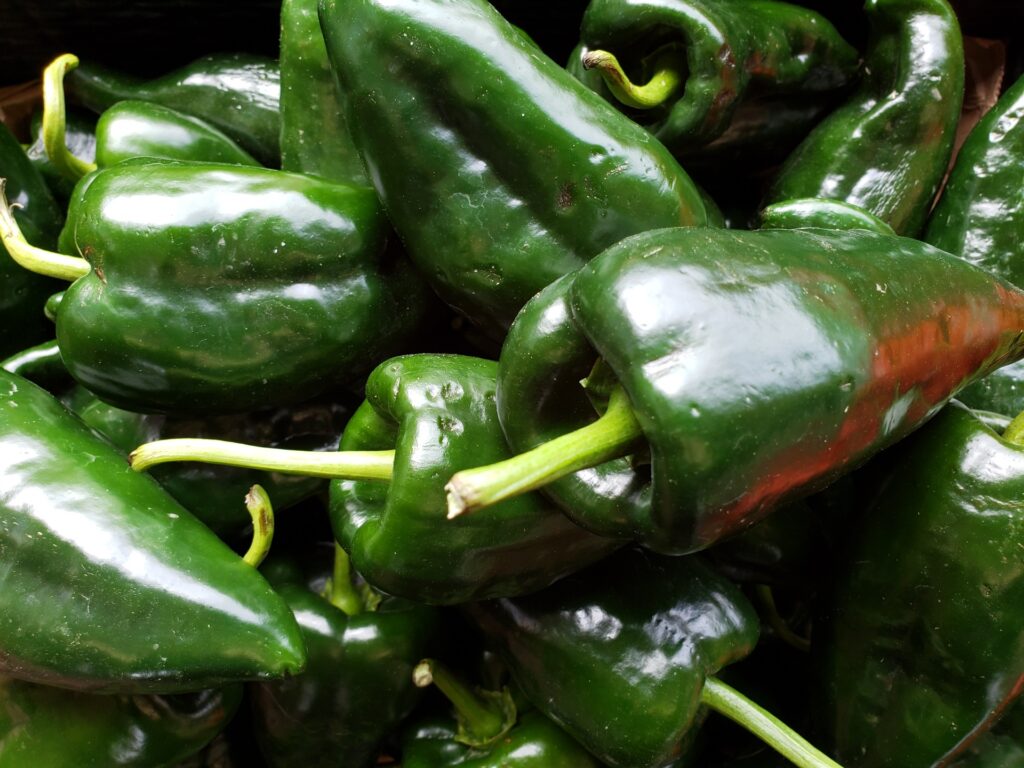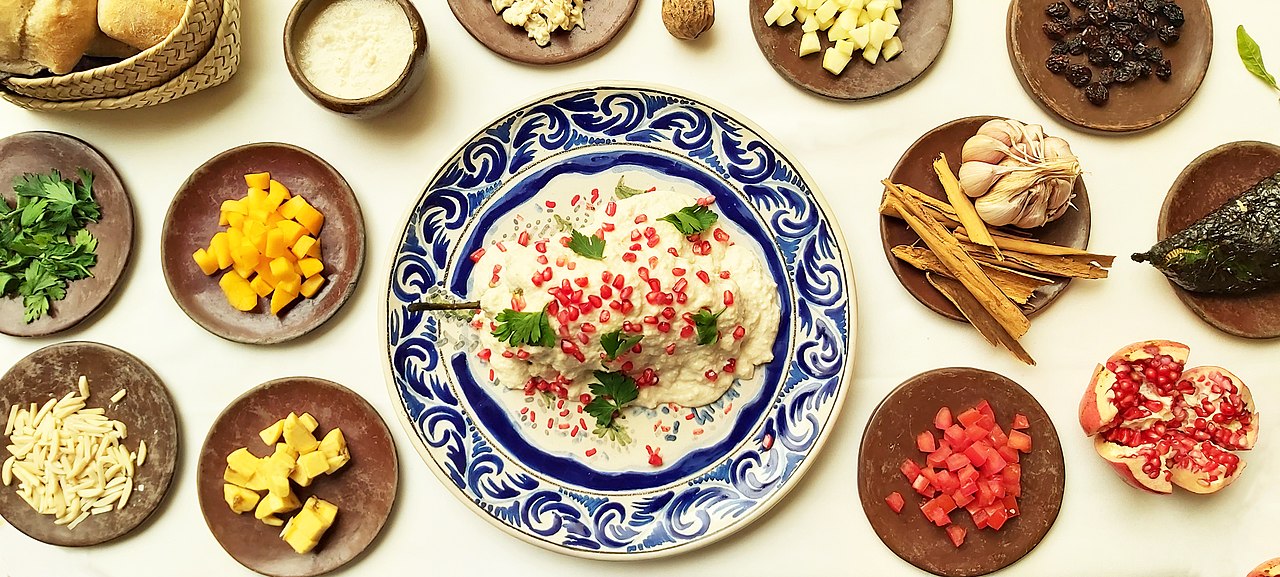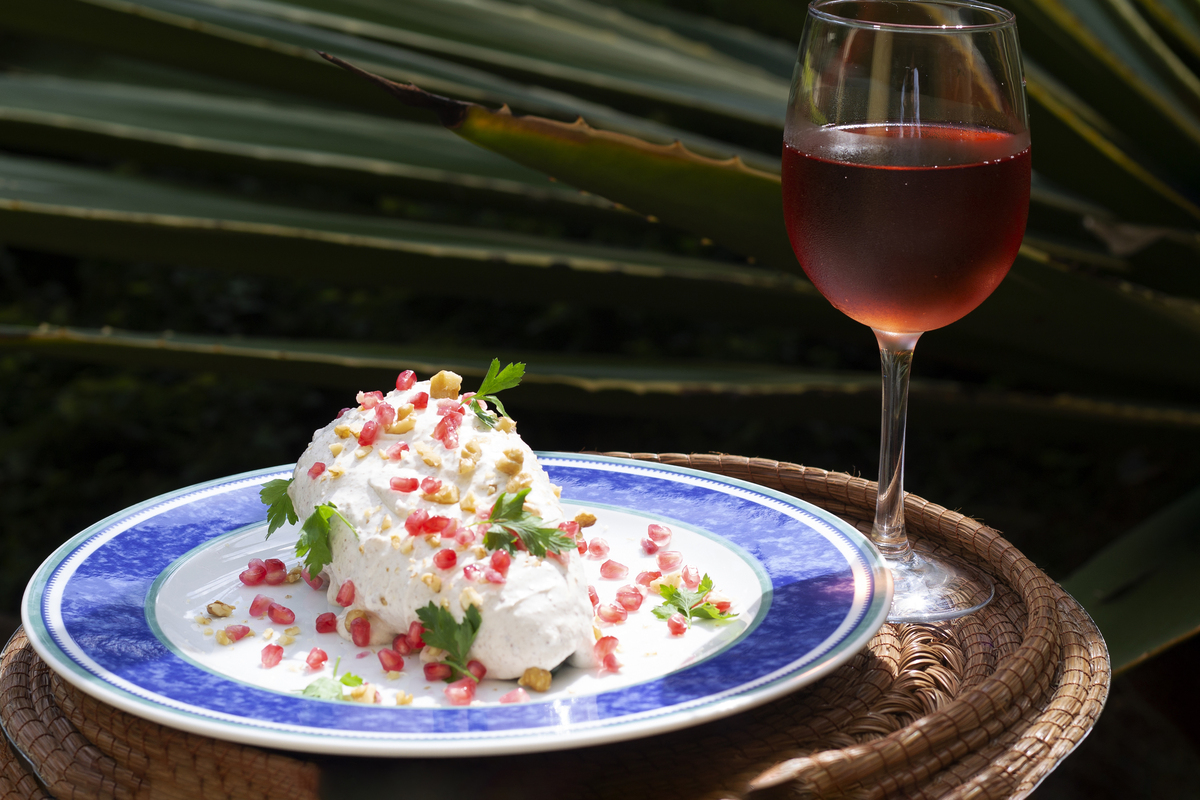The Mexican food par excellence, chilies are one of the main products and cultural identity of this country. According to chemical engineer Jaime Ortega Zaldivar, from the National Institute of Anthropology and History (INAH), and organizer of the first festival dedicated to chilies, sauces, and molcajetes at the Culhuacán Ex-Convent Community Center: “Mexico has the greatest display of chilies variety mainly due to rich weather and geography conditions, which allow this species to be cultivated in almost every corner of this country”.
Interesting fact: Chili peppers release dopamine, responsible of producing pleasure. This gives a hint as to why 90% of Mexican dishes contain this ingredient.
We want to share some historical and interesting facts about Chiles en nogada, prepared specially to celebrate Mexican Independence. The star ingredient is Poblano pepper —one of the least spicy—, that is produced in the states of Guanajuato, San Luis Potosí, Durango, Aguascalientes, Zacatecas, Sinaloa, Nayarit, Jalisco and Puebla.

Origin of chiles en nogada

The origin of this dish dates back to 1714, but it was not until almost a century later, in August 1821, that it became popular. The story says that at the time Agustín de Iturbide took command of the Trigarante Army —with their tricolored flag that represented the three guarantees: religion, union and independence, the inhabitants of the capital of the state of Puebla offered a banquet for him, featuring this exquisite local dish.
Original recipe, which has remained untouched until our days —with some additions, such as vegetarian versions—, include sweet fruits and meat, which serve as the chilies’ delicious stuffing and a scrumptious white walnut sauce known as nogada. Red pomegranate grains crown the dish to add the three colors of the Mexican flag .
Ingredients that are mixed with the meat, are representative of September season in Puebla: panochera apple, criollo peach, milk pears, pomegranates and, of course, walnuts.
Interesting fact: Historians agree that chiles en nogada were created in the Convent of Santa Mónica, by the Augustinian nuns, in honor of San Agustín de Hipona. They added a final batter touch to recreate the golden tones that can be seen in churches and their altars and sacred images.

To delight your palate
At Velas Vallarta, we continue with this delicious tradition of Mexican gastronomy, so throughout the month of September, our guests and members will be able to enjoy our typical chile en nogada.
But if you will not travel this month, we share our recipe so you can delight family and friends with the flavors of one of the most representative dishes of Mexico and its Independence festivities.
Viva Mexico!

Ingredients:
25 pcs. Poblano chile ready to fill
For the picadillo (ground meat):
- ¾ cup corn oil
- 6 garlic cloves
- 1 cup onion finely chopped
- 1 kg of ground pork
- 1 tablespoon of salt
- 1 cup of water
- 1 kg of tomato liquefied and strained
- ½ cup of peeled almonds
- ¾ tz. chopped black raisins
- 20 pcs. green olives
- 2 tbsp. finely chopped parsley
- 4 pcs. cloves
- 1 cinnamon stick
- Black pepper to taste
- 4 cups apple, diced
- 4 cups pear
- 4 cups criollo peach, diced
- 1 tbsp. of sugar
- 4 cups of plantain, diced
- 100 gr. pink pine nut, peeled
- 2 tbsp. white vinegar
Procedure for the picadillo:
- In ¼ cup of oil, fry 2 cloves of garlic until they are completely golden and discard the garlic. Season the onion, add the meat, salt and water, cover and cook until the meat is tender, for approximately 5 minutes.
- After a few minutes, uncover so that all the water evaporates and, if possible, the meat browns a little.
- In another frying pan, heat another 3 tablespoons of oil, brown 2 cloves of garlic and discard. Season the remaining onion, add the tomato and leave to season. Add almonds, raisins, olives and parsley, and let the mixture season for 2 minutes.
- Grind the cloves, cinnamon and pepper, add the tomato and remove the pan from the heat.
- Add the tomato mixture to the meat and let it season for 5 minutes and remove from the heat.
- Add sugar and mix.
- Separately, fry the banana until lightly browned, reserve the excess oil to fry the chilies.
- Mix the fruits, banana, pine nuts and vinegar with the meat.
Ingredients for the batter:
- 12 pcs of eggs
- 1¼ cup flour
- 2 tbsp. of salt
- 2 cups. corn oil
Batter procedure:
- Beat the egg whites until stiff peaks form, add the yolks, salt and ¼ cup sifted flour. Mix all the ingredients well until well incorporated.
- Flour the chiles and remove the excess.
- Heat the oil where the bananas were cooked to the point of smoke. Dip the chilies in the egg mixture and carefully fry one by one. While the lower part is lightly browning, with the help of a spatula, coat the upper part so that it browns evenly.
- Drain on paper napkins to remove excess fat from the coating.
- Keep warm and reserve.
Ingredients of the nogada:
- 1 cup peeled almonds soaked in water
- 5 cups cold water
- 400 gr. goat cheese
- 8 cups clean English or Persian walnuts, known in Mexico as Castile walnuts
Nogada procedure:
- Soak the almonds overnight in cold water. Refrigerate preferably.
- Mix all the ingredients in a bowl, except the water.
- Blend adding water as necessary. The texture must have consistency.
Presentation:
- 2 pcs. red pomegranate shelled
- Chopped parsley for decoration
Place the battered chilies on a plate. Serve the nogada over the chili and garnish with parsley and pomegranate.
Bon Appetite!

